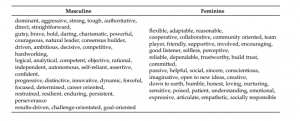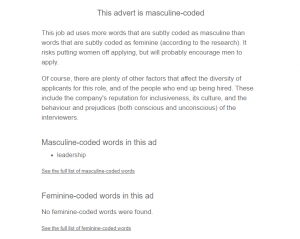
From the online to the offline, a number of comments, counter and alternative reactions have trailed the publication of one of the articles on the roads to the selection of a new Vice Chancellor for the University of Ibadan. The writer has specifically received a lot of messages via the message section of his social media handles and mobile phone. Some have reacted openly using the comment section of the article.
The comments and reactions have necessitated the need for this reply. The comments and reactions have shown that Nigerians are ready to have their voices in what concerned them irrespective of who published the information or said the statement. This is a welcome development as we all crave for better processes in all aspects of our national life. In addition to this, it is instructive to note that the writer does not have any ulterior motive and not against the candidacy of any contender. With the article, the writer does not have any previous issues with the Registrar as being insinuated by some commenters. As a matter of fact, the writer and the Registrar have never met on this earth.
Away from that this piece is a reply to some of the issues raised by the commenters. However, not every issue will be adequately addressed here because of the space constraint and the intent of not bothering anyone with a lot of the existing literature, especially empirical ones on the focus of the article [How Vacancy Advertisement Gives Male Professors Edge Over Female Professors in UI VC Selection].
Register for Tekedia Mini-MBA edition 18 (Sep 15 – Dec 6, 2025) today for early bird discounts. Do annual for access to Blucera.com.
Tekedia AI in Business Masterclass opens registrations.
Join Tekedia Capital Syndicate and co-invest in great global startups.
Register for Tekedia AI Lab: From Technical Design to Deployment.
The Candidate
The candidate for the post of Vice Chancellor is required to possess a good University education and should be a proven, successful manager of human and material resources. Specifically, the candidate shall be expected to:
- be a highly distinguished scholar of the rank of Professor, with a minimum of ten (10) years experience on that level and demonstrate ability to provide academic and administrative leadership for such a well-established institution;
- be a person of proven integrity;
- be not more than 65 years old as at the date of possible assumption of duty on 01 December, 2020;
- command the respect of the national and international academic communities through his/her track record;
- strengthen the bridges between staff, students and other members of the University community;
- be a person with a clear vision for the development of the University
- enjoy excellent physical and mental health;
- attract the much-needed funds into the University.
Exhibit 1: Masculine Wordings versus Feminine Wordings

From the vacancy statement, data on Exhibit 1 were generated and analysed. Looking at the comments and reactions, a number of the readers were not comfortable with the categorisations and their contextualisation in the article [How Vacancy Advertisement Gives Male Professors Edge Over Female Professors in UI VC Selection]. Some of the comments are reproduced below.
Select Comments
Francis Oguaju
I do not agree with the grouping on what sounded masculine and feminine, of course it could depend on who’s reading and the person’s fundamental biases about things. There’s always a fine line between meritocracy and gender-based equality. Most times we play tricks with our minds, believing that we can efficiently balance both, without injuring either of the components. Humans by their very existence are already complex creatures, that a narrative has gained wide acceptance or following does not mean it’s true or correct…
Femi
Back to the analysis; the masculine or feminine words/phrases categorization would have been correct three decades ago or outside an enlightened setting like the prestigious UI. But with the feminine liberation and gender mainstreaming efforts, these words/phrases apply to both gender and I suppose this is the intention of the Registrar. The analyst however reflected his/her masculine sentiment with the interpretation of these words/phrases. There is clear evidence of men with vision and women of integrity and vice versa.
Davida
I read the article enthusiastically at first hoping to find some interesting exposition, but I was quite disappointed along the line. I may not have a background as a linguist specialized in gender theories (which all have their criticisms) but a huge majority of the applicants wouldn’t have been either. So, I believe we can better view the requirements through the lens of qualified female and male applicants.
Nonetheless in my opinion, classifying strong leadership, negotiating and fundraising skills as masculine is degrading to women. Is this not a reiteration of 19th century ideals of what it meant to be a woman, and part of the issues that fuel the gender parity in elected positions in Nigeria?
Simeon Obasi
I got lost… when I heard masculinity, I was expecting to see things like ‘he must be’, ‘he must have’, ‘he should’! The only place I saw gender suggestive pronoun, I saw a balance of both! Let’s not whip sentiments when they aren’t necessary; while I don’t understand the objective basis for the analysis, I can as well say that the writer has a bias, or had an agenda he hoped to push.
Daniel
When you classify words or phrases as being able to provide administrative and academic leadership, ability to attract funding, being a person of integrity, being a proven manager, and the likes as being masculine, I am sincerely struggling to understand the basis of such conclusion.
Ndubuisi Umunna
This issue is open to different interpretation. I believe merit should be the hallmark over gender bias.
The Reply
Like the writer noted in one of his replies to the comments, studying gender equality or inequality is a matter of theoretical perspectives or approaches taken by the researcher. This has been hinged on the fact that investigating gender equality or bias remains a complex line of inquiry. From sociologists to psychologists and anthropologists, the right approaches or perspectives to understanding gender equality or inequality remains debatable.
A researcher who wants to understand why female students are not performing like their male counterparts is most likely to embrace feminist perspective [feminist theory], especially when the researcher is a woman or a man that has a special interest in gender equality or mainstreaming. A researcher who intends to find out why men and women at workplaces are usually having conflicts is most likely to follow conflict and interaction perspectives using propositions and assumptions of conflict symbolic interaction theories. It is also instructive to note that Nigeria is a Masculine society as theorised by Geert Hofstede.
Therefore, in the article [How Vacancy Advertisement Gives Male Professors Edge Over Female Professors in UI VC Selection], the writer aligned with these perspectives. The writer believes that the position has been occupied by men professors since the establishment of the University. Looking at the propositions and assumptions of these theories, it is imperative to question why women professors are not applying and being selected and approved for the position having found them competent. This led to the analysis of the vacancy message to understand how the communication of the seat actually alienated female professors [considering it as the first stage of the processes for selecting and appointing the new VC].
In a recent study, it was found that the idea of advertising the position of Vice Chancellor using the traditional masculine-biased leadership ideal has decreased in influence with the feminine, transformational leadership ideal acting as a counterweight. Over the years [in the literature], a number of studies have documented how the position of Vice Chancellor should be advertised to avert gender issues [see Exhibit 2].
Exhibit 2: Empirically verified Masculine and Feminine Words for Communicating Job Advertisement

To advertise strategic and sensitive position like the Vice Chancellor of a University that prioritises gender equality, one would expect a thorough analysis of words for communicating the position. Several information exists on how to take gender bias out of job advertisements and use gender-neutral language to reduce bias and boost diversity. Like we always said in our articles, we do not just analyse using human-centric applications. We incorporate technologies into our data gathering and analysis processes. Despite that, we believe nothing is perfect absolutely. Before we arrived at the insights in the article, we used a software [see Exhibit 3]. The result turned out and indicated the message was masculine-coded. Since we believe that the machine itself cannot be accurate 100%, we employed human-centric approach. This led to proper categorisation according to our perspectives [see earlier notes].
Based on our perspectives and analysis, we expect better way of communicating the position. As a matter of fact, what we found is not only peculiar to the University of Ibadan. In our ongoing analysis of advertising of Vice Chancellorship position in Nigeria, there are many surprising results.
Exhibit 3: The Outcome of the Vacancy Message Analysis using Machine Learning-enabled Software




